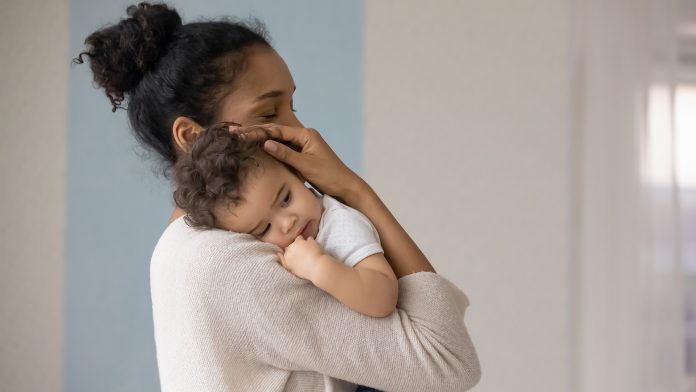
Loneliness can often contribute to perinatal depression in expectant and new mothers, finds a new review of the evidence led by UCL researchers.
University College London (UCL) researchers conducted a meta-synthesis of qualitative research and pulled together accounts from 537 women from 27 research papers on four continents. The researchers recommend that people working with expectant mothers, such as in antenatal classes, should be aware of the importance of loneliness and the value of encouraging new mothers to develop and maintain good social connections to reduce the risk of perinatal depression.
Lead author Dr Katherine Adlington (UCL Psychiatry and East London NHS Foundation Trust) said: “We found that loneliness was central to the experiences of expectant and new mothers with depression. We know that depression and loneliness are often interconnected – each one can lead to the other – and this may be particularly true for perinatal depression.”
The research is published in BMC Psychiatry.
What is perinatal depression?
According to MIND, perinatal depression can occur at any time from becoming pregnant to around one year after giving birth. It can cause restlessness, worthlessness, and having no confidence. It is common, affecting one in six pregnant women and can significantly affect new parents’ quality of life.
Treatments for perinatal depression vary from person to person. Doctors may offer talking therapy, medication, a combination of these two or electroconvulsive therapies (ECT).
Investigating loneliness in new and expectant mothers
When the team reviewed the data, they found very little research into loneliness in perinatal depression, despite loneliness being prominent throughout the studies.
Some causes of loneliness included stigma, self-isolation, emotional disconnection, and not receiving enough support. Many women reported a fear of judgement as a ‘bad mother’, and both perceived and experienced mental health stigma, leading to them hiding their symptoms of perinatal depression.
Furthermore, many women also report a sudden sense of emotional disconnection after birth, from their previous lives before pregnancy, from other mothers, and the baby. Others reported a mismatch between expected and actual support from the people around him.
The data review also highlights ways to improve perinatal depressive symptoms. Validation and understanding from healthcare professionals were helpful and may alleviate loneliness. Peer support from other mothers experiencing depression was also helpful, but only if they had similar stories to share.
Senior author Professor Sonia Johnson (UCL Psychiatry and Camden and Islington NHS Foundation Trust), who co-leads the Loneliness and Social Isolation in Mental Health Network at UCL, said: “Helping women to understand early on in pregnancy how common loneliness is, and how it can lead to mental health problems, and that it’s okay to feel such feelings, could be an important way to reduce the impact of perinatal mental ill health.
“We found that healthcare professionals also have an important role to play in helping women to feel heard and validated in their experiences of loneliness, so we would suggest that asking expectant and new mothers about potential feelings of loneliness could be highly beneficial, in addition to signposting them to peer support.
“Peer, social and family support are likely to be crucial in reducing perinatal depression; this study helps understand the importance of social connection at this time, but there is a lot more to be done to understand why loneliness is so important in the perinatal period and to develop effective ways of preventing or reducing it.”









